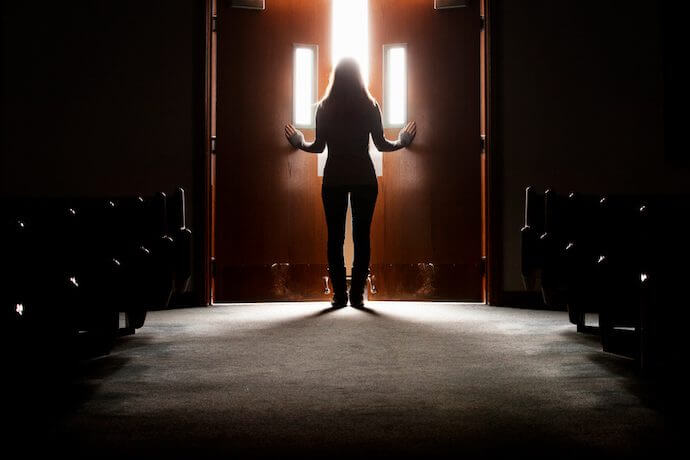Countless individuals often take the challenging but profoundly transformative journey of leaving the Jehovah’s Witnesses. Unlucky for them, they lose the fellowship’s tightly-knit community.
This loss of one’s support system can be emotionally and psychologically complex. The process liberates and challenges your emotions, social and spiritual life.
So, what should you expect when you decide to leave Jehovah’s Witness?
Read on to learn more about what it takes to leave Jehovah’s Witness, the after-effects of leaving, and how to cope with potential consequences.
Leaving the Jehovah’s Witnesses
Leaving Jehovah’s Witness (JW) is a crucial life transition that demands careful preparation—mentally and emotionally.
Here’s how you can navigate the process of leaving JW:
I. Preparing Emotionally and Mentally
Self-reflect on the reasons for leaving the fellowship.
Determine your values and beliefs independently and compare them with JW’s core values.
Do they align in any way?
Understand that leaving will be emotionally daunting. If need be, consult a therapist specializing in religious trauma.
II. Seek Support from Former JW Members
Connect and consult former JW members to understand their experiences after they leave.
You can contact them via online communities, social media, or physical meet-up groups.
Joining these events builds a real-life connection and helps you understand experiences from both divides.
III. Understanding the Disfellowshipping Process
It’s important you learn the disfellowshipping process.
Understanding the process offers insights into what you will be subjected to should you decide to leave.
It also helps you understand the potential consequences, and how leaving will affect your relationship with friends and family within the faith.
IV. Communicating With Family and Friends Within the Faith
Talk your family and friends through your intentions about leaving the faith.
While you need to be respectful and honest, expect diverse reactions.
Almost certainly, those within the faith will resist or try to persuade you to stay.
The process of leaving JW requires courage and resilience.
Additionally, you must be emotionally prepared and have a support system.
Consequences of Leaving Jehovah’s Witnesses

While preparing for the process of leaving JW shields you from adverse effects, there are some inevitable consequences.
I.Shunning and disfellowshipping
The JW adheres to shunning or disfellowshipping as a doctrine. The practice involves disassociation or cutting off former members socially and emotionally.
Your former friends within the faith may emotionally troll you, resulting in rejection and loneliness. Ex-JW also faces losing the close-knit community.
II. Emotional Impact and Coping With Loss
After leaving the JW, you will face grief and identity loss religiously.
Worse, you lose the support system and friends tied to that friendship.
Therefore, you need to rediscover your purpose, especially outside the walls of faith.
Ex-JW needs to find a healthy way to cope with the adverse emotional impact.
III. Potential Strain on Family Relationships
Leaving the faith will create tension if you have friends and family members within the JW.
The conflict will vary depending on how strongly your family adheres to Jehovah’s Witnesses beliefs.
The tension may result in communication challenges, even on non-religious issues.
IV. Impact on Friendships Within the Faith
Without a doubt, the biggest consequence of leaving JW is losing friends who are within the faith.
Most friendships within the faith are based on shared beliefs; therefore, once the binding factor diminishes, the friends are vulnerable to dissolution.
Challenges Faced During and After Leaving
Former JW members experience several challenges during and after leaving.
These challenges are based on the fact that you’re starting a new journey:
1. Internal Struggles and Doubts
While leaving JW, most ex-JW members struggle with self-doubt—the doubts of whether they are making the right decision.
In addition, they deeply question their spiritual paths and beliefs.
These internal struggles lead to emotional turmoil resulting from conflict and confusion about their decision.
2. Adjusting to a New Identity and Belief System
Ex-JW needs to shift their worldview, especially on beliefs such as the world ending soon.
You have to reconstruct a new identity to align with their evolving beliefs.
In addition, you need help to determine your values and ethical principles.
Most ex-JW face the erosion of their moral framework by finding solemn in other faiths.
3. Rebuilding a Social Support Network
As aforementioned, leaving JW robs you many social contacts.
Ex-JW members must build this support system afresh.
Introverts may deeply struggle with that, leading to feelings of isolation.
Luckily, numerous ex-JW communities and groups serve as a starting point for a new social circle.
4. Dealing with Guilt and Fear of Divine Judgment
As with leaving any faith, former members of JW may experience guilt.
The guilt emanates from self-doubt and fear of potential consequences.
In addition, JW doctrines teach about an oncoming divine judgment.
Coping With Less Social Connections and Support

Ex-JW members have to leave with fewer social connections, especially in the initial stages.
Lucky for you, there are constructive ways to transit through this period. Here’s how:
I. Accept Your Feelings
Acknowledge any feelings of loneliness and sadness.
Understand that this isolation is arising due to reduced social connections.
Once you acknowledge the feelings, be compassionate about it.
Understand it’s a normal experience as the emotions get used to the change.
II. Get Involved
Stay active and pursue your hobbies and interests.
Engage in activities that bring joy and fulfillment and some sense of purpose.
It can be anything from learning a new skill or any creative endeavors.
III. Join Community and Support Groups
Join local community, clubs, and support groups to get some sense of purpose.
You can learn more about these groups on online and social media platforms.
Better, you can connect with others with whom you share values and passion.
Resources and Support for Individuals Leaving JW
Jehovah’s Witness shunning and ostracism severely impacts your physiological and social well-being.
Research by the National Library of Medicine indicates that the emotional effects can be drastic.
The research recommends that victims get emotional and financial support.
Some of the new exciting resources and support forums include:
A. Online Communities
Internet and social media forums are helpful in actively supporting former JW members.
These communities have members narrating similar experiences and providing emotional support.
One of the most popular online platforms is a subreddit for ex-JW members. There are numerous other social media groups, especially on Facebook.
B. Physical Meet-ups
There are numerous ex-JW physical meetings on platforms like Meet Up.
Most participants of the NLM research express the need for in-person support groups.
Wrap UP
The journey of leaving Jehovah’s Witnesses is complex and involves grappling with your beliefs.
Consequently, this action emotionally impacts loss and isolation. This can be worse if you have family members within the faith.
Better yet, ex-JW can find solace in various places through various support systems.
We advise finding professional counseling services. They help you deal with the aftermath of leaving a “high-control” group.
Disclaimer:
The information provided in this post is intended solely for informational purposes. It is not intended to encourage individuals to leave the JW community or to portray the faith in a negative light. The decision to leave Jehovah’s Witnesses is deeply personal, and readers are advised to exercise their own judgment and prioritize self-care throughout the process. The content does not substitute professional advice or counseling, and individuals should seek appropriate support and resources tailored to their specific needs and circumstances.

